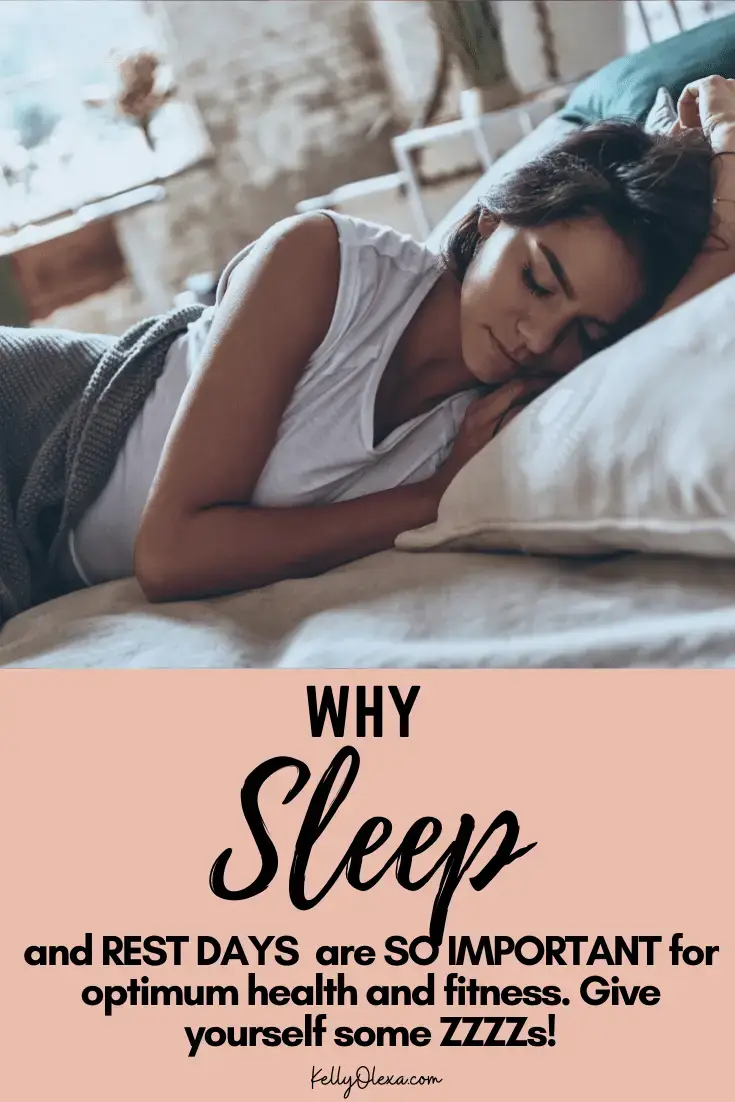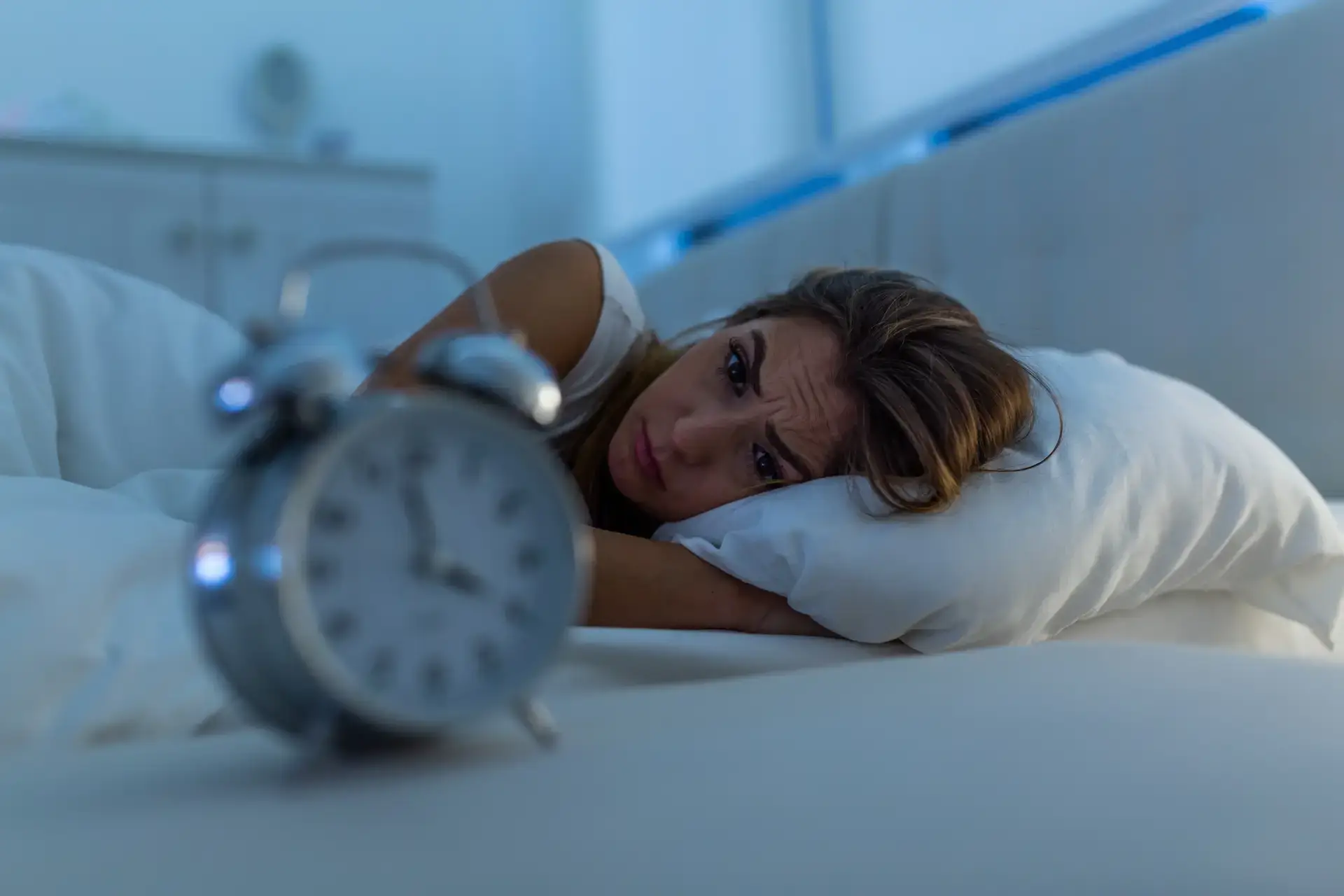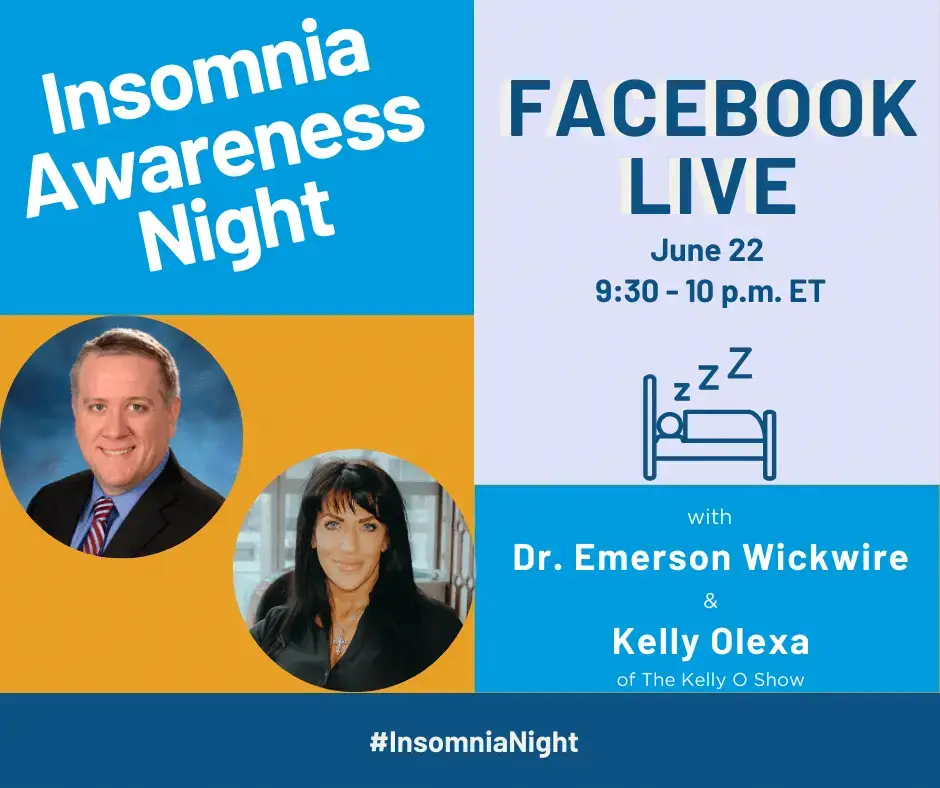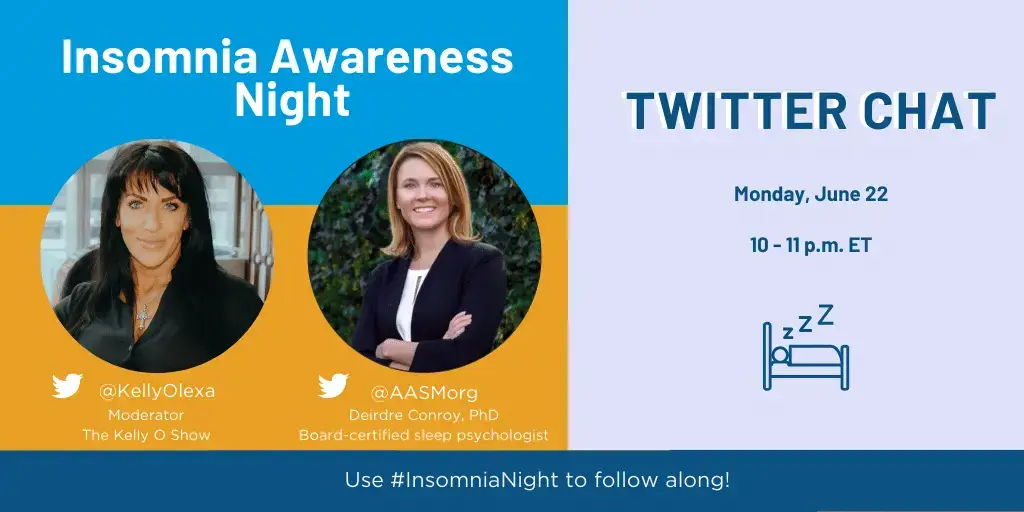Why you need to get a good night's sleep.

Disclosure: This post is sponsored by The American Academy of Sleep Medicine (AASM). As all of you know, I have been an advocate for the power of good SLEEP for years and when they asked me to help educate on chronic insomnia I said I’m ALL IN. All opinions expressed here are my own.
You know what I find perplexing? How many people complain about not getting good sleep or enough sleep- and yet, they don’t DO anything about it. I personally feel that the reason for this is that — and this is crazy- it’s become this accepted thing in our country to be a workaholic, and to not get a lot of sleep. In fact, I’ve seen way too many times, people actually bragging about how they never get more than 4-5 hours of sleep a night- and then they laugh it off. I, on the other hand, have always known in my gut that my body NEEDS optimal sleep. I truly have just known it– it wasn’t that I was acting on research, I just inherently knew my whole life that I needed to make a good night’s sleep a PRIORITY. And if you’ve been following me for a while, you know that I’ve shared– the VERY SECOND I start to feel worn down, beat, dragging…..or like I’m possibly coming down with a cold, I will 1) go to bed early that night 2) skip a workout 3) sleep in and more often than not– those simple steps will rejuvenate me and/or prevent me from getting a cold.
I’ve always said that SLEEP and even REST is a great healer. The problem is, too many of us don’t give ourselves permission to STOP our crazy busy lives to REST. This has created a nation of workaholics (trust me I’ve been one of them) who aren’t sleeping, suffering from chronic insomnia, taking possibly dangerous OTC or prescription sleep drugs, and over-caffeine-ating the next day to try and “power through”.
DOES THIS SOUND FAMILIAR?
Do you have problems sleeping? Do you have trouble FALLING ASLEEP? or possibly staying asleep? Let me tell you– you may know this- but you aren’t alone. The National Institutes of Health estimate that more than 1/3 of us suffer from chronic sleep disorders.
Friends, you know me. I’m all about encouraging you to 1) RECOGNIZE that feeling bad- in a big way and for a long time is your body telling you RED ALERT RED ALERT– HELP ME – something is wrong! and 2) UNDERSTAND HOW MUCH BETTER YOU WILL FEEL AND FUNCTION AND LOOK (YES LOOK! when you aren’t WELL, you look like hell! Sorry not sorry) when you FIX THE PROBLEM and lastly 3) REALIZE that to fix the problem, you need to become your own advocate– do some research be an informed patient and ask for the help and treatment you deserve– DON’T JUST ACCEPT LIFE AS IT IS!!
EXAMPLES:
Remember how I was having chronic migraines for months? I couldn’t work, I couldn’t work out– this was NEVER-ENDING- from about August of 2019 to January 2020!!!! When I finally saw a neurologist– everything changed. I got my LIFE back!
Same thing for when about 10 years ago I woke up with horrible lower back pain. Didn’t go away. I did reading and research and figured out how to get rid of it.
What about hormones? Full disclosure !! it was my BFF Whitney Jones who PUSHED me to get my bloodwork and my hormones addressed with an integrative medicine doctor but once I did– my life has been forever better and now I’m one of those women that women find online to get help with — because they are lost and need assistance!!
Too many people just ACCEPT crappy health situations. You don’t have to!! It’s time to address your SLEEP as if it is top priority because — I can tell you from personal experience- when you are getting GOOD CONSISTENT SLEEP– trust me– you will:
Be more productive at work.
Be better in your workouts.
Eat BETTER and therefore stick with your diet and lose weight.
Have energy.
Look AMAZING.
When you don’t get sleep- you have zero energy. You consume way too much caffeine, you tend to eat the wrong foods, you have no drive to work out– and you trudge through the day. Why live like that? Let’s make transforming our sleep a priority.
And as a “PS” here, I want to point out that REST is just as important and REST DAYS.
Too many of us who have big fitness goals and are impatient (ME ME ME) have problems taking rest days– we think more is always better when it comes to working out. We feel guilty skipping a workout. Is this you? I was there for years. Trust me when I say this– RESTING or skipping a workout when you are depleted is far better for you than pushing through a workout when you barely can stay awake– that’s when you start destroying your adrenals and getting into more serious health problems. Don’t do that. Make listening to your bod a priority and TAKE A REST.
This was my first week at a new job. I LOVE IT. And yet- this week was JAM PACKED with understandably- a lot of meetings. Back to back meetings and calls and homework etc. — it’s typical but a LOT to take in. I didn’t sleep on Sunday night because I was so excited and my mind was racing. So this week I missed 3 workouts. THREE! I HAD JUST GOTTEN BACK UP TO MY NORMAL 6/WEEK WORKOUT GROOVE– but I’m sharing this with you because– this week I was not eating well (my fault), and it made me tired, very tired from all the excitement and busy-ness. I knew my body needed REST during the day (not to push through a hard workout) and SLEEP at night. Quality sleep. Going to bed early and sleeping 8 hours. This was a priority.
Am I frustrated I have a week this week with only 3 solid workouts? YUP! but I KNOW if I did the hard workouts on Monday/Tuesday/Wednesday- I’d be probably on the verge of catching a cold right now. With covid life floating around us– AIN’T NOBODY GOT TIME FOR THAT!
MAKE YOU AND YOUR HEALTH A PRIORITY!!! MAKE YOUR SLEEP LIFE A PRIORITY– WATCH HOW THAT CHANGES YOUR LIFE– TRUST ME.

Do you have Chronic Insomnia?
More than an occasional restless night, chronic insomnia involves difficulty falling asleep or staying asleep, or regularly waking up earlier than desired, despite allowing enough time in bed for sleep.
“Getting adequate sleep can be difficult, especially in times of increased anxiety or stress, like those we have all experienced recently,” said Jennifer Martin, PhD, a member of the AASM board of directors. “However, chronic insomnia disorder is more persistent, and when left untreated, can lead to a range of long-term health issues.”
Chronic insomnia disorder involves difficulty sleeping and daytime symptoms occurring at least three times per week for at least three months. Its lasting effects are more severe than acute or short-term insomnia, which in most cases resolves itself.
Symptoms of Chronic Insomnia
Symptoms associated with chronic insomnia include daytime fatigue or sleepiness; feeling dissatisfied with sleep; having trouble concentrating; feeling depressed, anxious or irritable; or having low motivation or low energy. It is more common in women than in men.
Impact of Chronic Insomnia
Chronic insomnia is associated with increased risk of a range physical and mental health problems. Research suggests chronic insomnia can lead to increased risks of depression, anxiety, substance abuse and motor vehicle accidents. Research also shows that impaired sleep is a risk factor for Alzheimer’s disease, and a recent study found that people who have insomnia are 28 percent more likely to develop Type 2 diabetes than those without.
Chronic insomnia also has a negative impact on work and school performance, impairing concentration and increasing the risk of errors and accidents. Research has estimated that insomnia is associated with nearly 253 million days of lost work each year in the U.S. and more than $100 billion in annual costs due to indirect costs such as poorer workplace performance, increased health care utilization and increased accident risk.
“The effects of ongoing insomnia can impact nearly every aspect of your life,” said David Bishop, chairman of the board of directors of AAHS. “Developing healthy sleep habits can help someone who has a mild or short-term case of insomnia, but if symptoms persist into the daytime and inhibit your quality of life, it’s time to get support from your doctor.”
Stats from The American Academy of Sleep Medicine (AASM), Society of Behavioral Sleep Medicine (SBSM) and American Alliance for Healthy Sleep (AAHS).
Want to learn more about chronic insomnia?

Monday night I’m co-hosting a Facebook live on The Kelly O Show Facebook Page at 8:30pm CST followed by a Twitter Chat at 9pm CST on this topic. We have some great experts on so you can learn how to improve your sleep and your LIFE. Will you join me? For the Twitter Chat– log in and follow me to chat!

